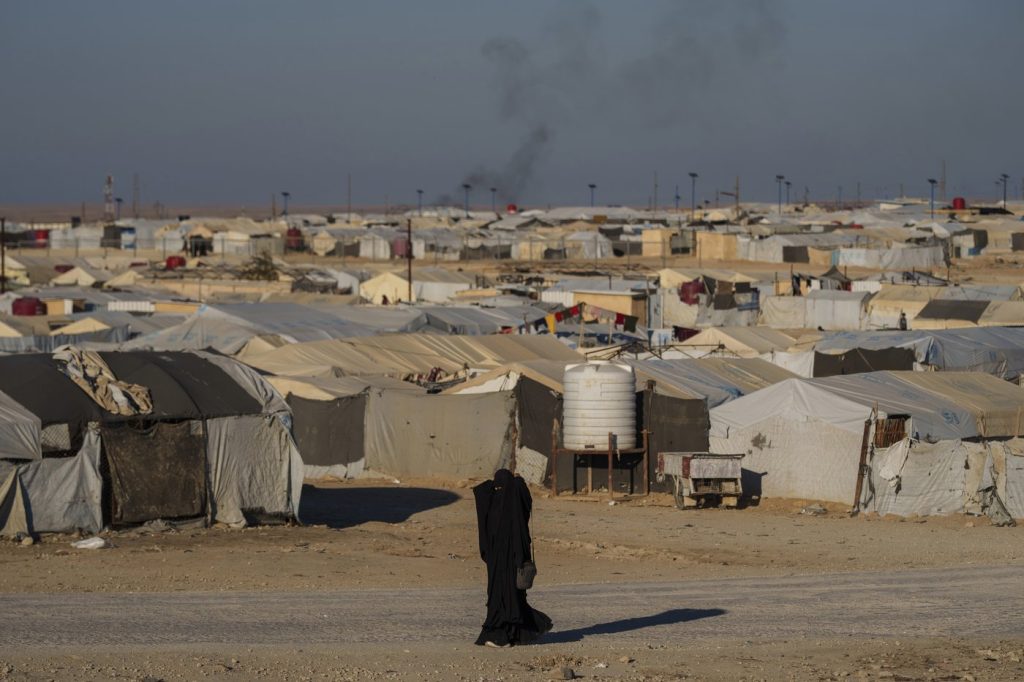DAMASCUS, Syria (AP) - The United States has successfully repatriated an American child who had been separated from their family at a sprawling camp in northeastern Syria, according to a statement from the State Department on Wednesday. This camp, known as al-Hol, is home to tens of thousands of individuals claiming ties to the militant group Islamic State (IS). The repatriation underscores the ongoing challenges associated with U.S. citizens caught in the complex web of the Syrian conflict.
Al-Hol Camp is estimated to house around 30,000 people from 70 different countries, with the majority being wives and children of IS fighters, as well as supporters of the extremist organization. Many of these individuals come from Iraq and various Western nations, who traveled to Syria to align themselves with IS. Human rights organizations have often highlighted the dreadful living conditions and rampant violence within the camp, conditions that have persisted under the administration of the U.S.-backed Kurdish-led Syrian Democratic Forces (SDF), Washington’s primary ally in the ongoing fight against IS and its operatives.
The State Department did not provide specific details regarding the repatriation process, but it noted that the child “has known nothing of life outside of the camps” and will be reunited with their family. This move aligns with longstanding U.S. military efforts urging countries to repatriate their citizens from al-Hol and another nearby facility, Roj Camp. While Iraq has been progressively increasing the number of repatriated nationals in recent years, many Western countries have been hesitant to follow suit, raising concerns regarding national security and the reintegration of these individuals into society.
The U.S. State Department emphasized the need for a comprehensive solution to the humanitarian crises in these displaced persons camps. They stated that the only viable response is for countries of origin to repatriate, rehabilitate, and reintegrate their nationals, and where necessary, to ensure accountability among former IS fighters currently held in detention centers across northeastern Syria. This call reflects a broader initiative aimed at addressing the persistent security challenges posed by IS and its remnants in the region.
In May, an agreement was reached between Damascus and the SDF to facilitate the repatriation of Syrian individuals residing in the camp. This agreement came amidst complex negotiations with the interim President Ahmad al-Sharaa's administration. Following the ousting of Bashar Assad in December, Washington has been advocating for the two parties to implement their agreement and work toward the unification of Syrian territory, a move that would potentially bring al-Hol under the control of the Syrian government.
The SDF has not yet commented on this specific repatriation, highlighting the ongoing complexities and sensitivities surrounding the situation in northeastern Syria. The repatriation of the American child marks only a small step in a larger narrative delineating the intertwined fates of displaced families, national security concerns, and the lingering influence of extremist groups in the region.











